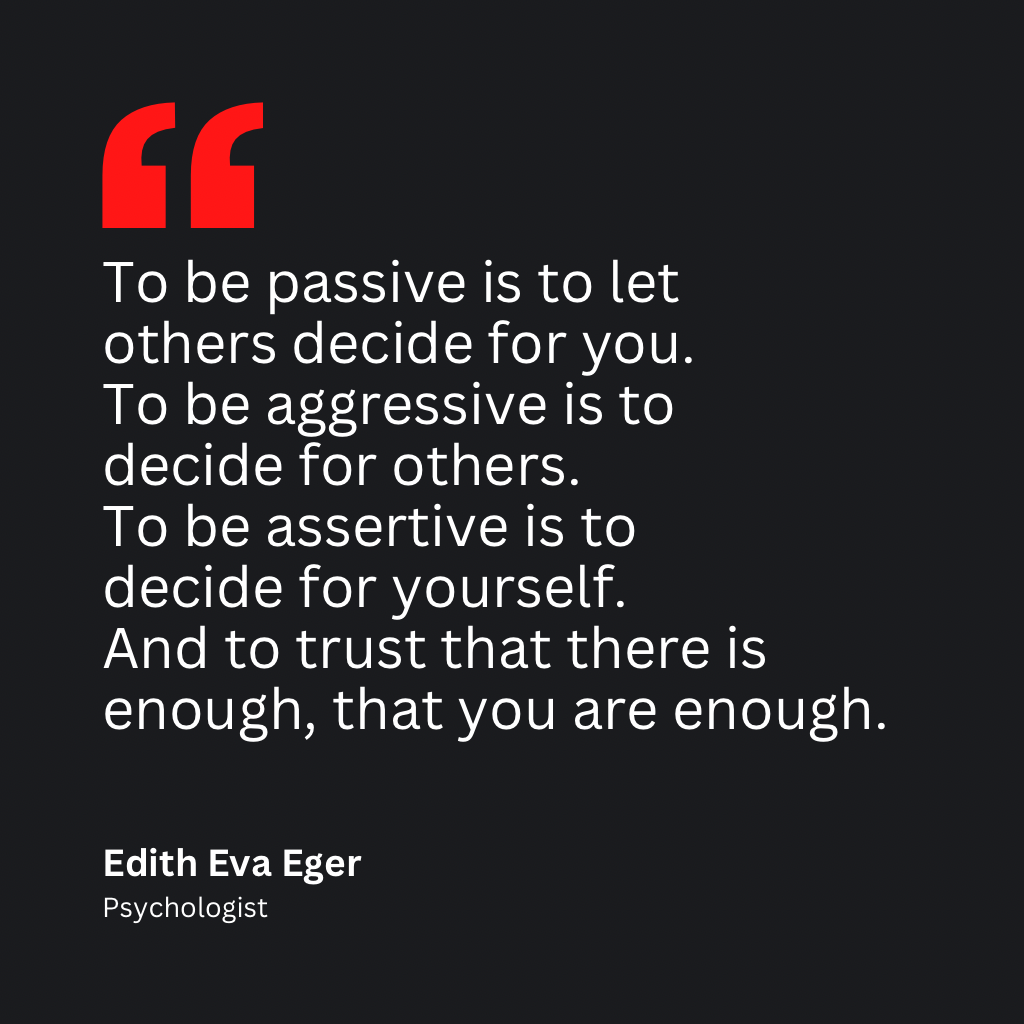To be assertive means to take into consideration all of your rights and values when you decide to act. It means to judge what you allow or deny others to gain from you. You simply can't afford to please everyone.
Some people want others to do their work for them. These kinds of people are the people that drain your energy without giving a damn about yourself. Personal gains are more important for them than helping others, or creating or gaining collective value.

You have to understand that you have limited time, money, and energy, and you can not focus on helping all the people out there. Is better to try to guide others to learn how to help themselves instead of doing their work for them. And if they won't do it, stop giving a damn! It's their problem, not yours!
Every time somebody tries to abuse you, start asking yourself:
What's in it for me?
Every person that understands how the overall good is created in this world, understands that big things are created by communities, not by a single individual. Yes, an individual might have an idea and might work for it, but in the end, its success depends on the community that it's built around. And each community member should gain more knowledge and value with each interaction.
By understanding that it's not your duty to do everything, you start to focus on your goals and what empowers you.
There's a quirk as well. Assertiveness is frequently misunderstood. We mostly think that being assertive implies also being aggressive, to make others understand we aren't able to do their work.
Don't be a fool. To be assertive means to decide, to take action, or to stand your ground while taking into consideration feelings and emotions as well.
Smart people resist the pressure of excessively dominant or aggressive behavior.
If someone comes to you repeatedly to do their stuff, just let them know that you have limited availability, and you already have something else to do, therefore, they'll have to do it themselves. If they insist, then just ignore them, and don't mess with them.
Quiet quit.
If they'll ask themselves why you did that, they'll finally understand. But only a few people do that. Many of them don't give a shit about the others, and they start judging you like a newly released book that they haven't heard of before.
When someone doesn’t understand your value or doesn't respect your rights, time, or energy, quiet quitting is a good option to let them think about your unavailability.
ASSERTIVENESS[1]
noun – confident and forceful behavior.
"she has difficulty standing up for herself, even when assertiveness may be warranted"
Assertiveness is about choice. It should be used by your internal cognition process to decide how you behave when you get in or get out depending on the situation or context.
Being assertive protects you from being taken advantage of, and helps you to achieve your own goals and to reduce anxiety. It also protects you if you feel that you don't have the power of exercising or expressing your rights.
A few takeaways: be aware of your rights and value them, accept that you can not control the behaviors of others, and learn to say "NO".
You can also try to use "fogging" responses[2]. Listen carefully to what is being said, acknowledge the truths without getting drawn into or feeling pressured to agree to either explicit or implicit demands of the other person. Reply using their vocabulary, acknowledge their need, but state your view. They will know that you understood their request, but you won't do it.
Request: "Johnny, I need you to help me with this now!"
Your response: "I'm sure you do, but now it's just not possible as my priority is ..."
Stop being a people pleaser and be more assertive instead.
Footnotes
- Assertiveness definition as stated in Google Definitions from Oxford Languages
- Fogging is a communication technique that involves agreeing with any truth that may be contained within statements, even if critical. By not responding expectedly, in other words by being defensive or argumentative, the other person will cease confrontation as the desired effect is not being achieved.
Assertiveness
To be passive is to let others decide for you. To be aggressive is to decide for others. To be assertive is to decide for yourself. And to trust that there is enough, that you are enough. – Edith Eva Eger
